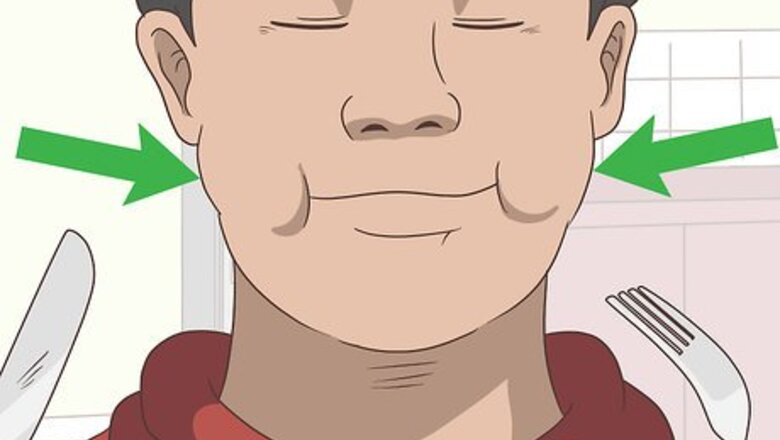
views
Getting Adjusted to Dentures
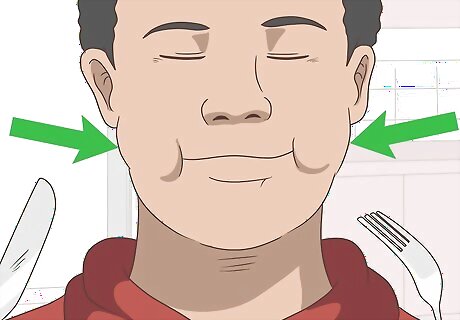
Chew on both sides of your mouth. The food should be in the back on both sides of your mouth or in the front corners. Chew slowly on both sides at the same time. This way, your dentures will more likely stay in place and will evenly distribute the chewing pressure.
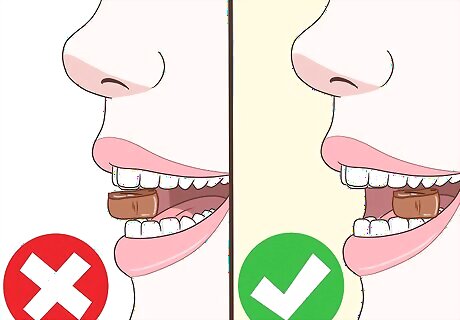
Avoid chewing with your front teeth. If you try to bite food with your front teeth you risk displacing your dentures. Instead, bite the food using the side teeth and use your tongue to bring food to the back of your mouth. Chew thoroughly and slowly before you swallow.
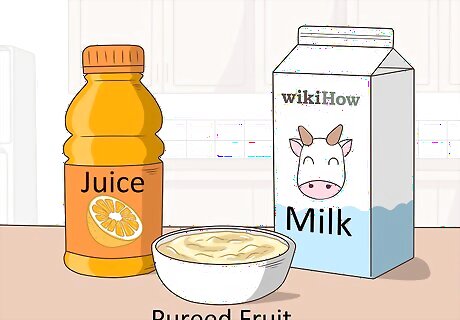
Break your dentures in with a liquid diet. For people who have never worn dentures before, it may be very difficult to eat any sort of solid food. Drink nutrient-dense liquids like juiced fruits and vegetables or milk (animal- or plant-based). Then, work your way up to puréed fruits and vegetables, such as applesauce or compote. Other good choices include: Tea or coffee sweetened with honey Soups, broths, or bisques without chunks of other foods
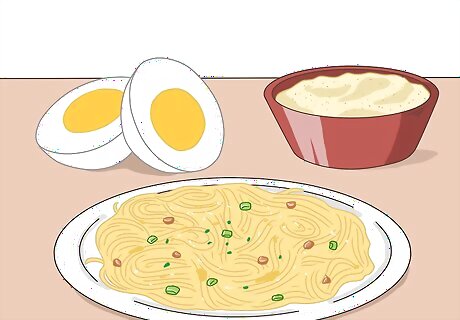
Transition to a soft diet. These foods are easy to chew and swallow. Cut or mash your food before eating, if necessary. In addition to the foods you could eat on your liquid diet, you can also eat: Soft cheese, eggs, mashed potatoes, ground meat, cooked legumes Soft fruits, boiled rice, and pasta Breads and cereals softened with milk or water
Enjoying the Foods You Love
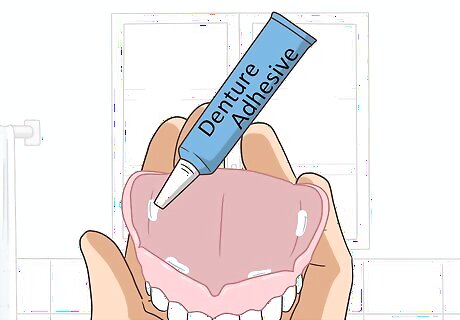
Use denture adhesive. Denture adhesive protects against food particles getting stuck between your dentures and gums. Make sure your denture is clean and dry, then squeeze the adhesive in short strips into the dentures beds. To prevent the adhesive from oozing out of your dentures, avoid getting the adhesive close to the edges. Start with a small amount and gradually add more if you need it. This is especially necessary for your lower denture, which has less surface area contacting your mouth surfaces. Ask your dentist for specific recommendations based on dentures and your diet. Rinse and brush your dentures each night to remove food particles and plaque, and keep them in warm water or denture solution when you're not wearing them to keep them from warping.
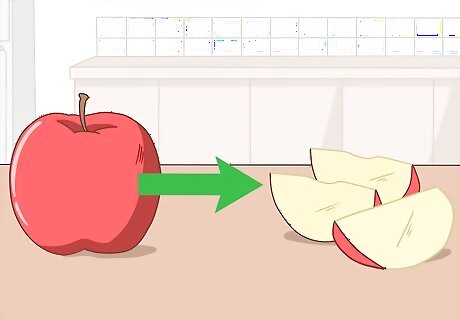
Cut tough foods into smaller pieces. For example, slice your apple or raw carrot into manageable pieces instead of biting into the whole thing. Remove corn from the cob with a sharp knife. Tear the crust away from your pizza or garlic bread. If you adjust your eating technique for a particular food, you don't have to give up that food.
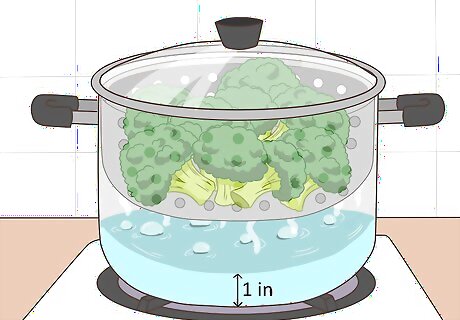
Steam your vegetables. Raw vegetables can be hard to eat with dentures. Steaming them will maintain their flavor while giving them a softer, yet somewhat crispy, texture. Pour about 1 inch (2.5 cm) of water into a large pot. Place it on a burner set to high and let it come to a rolling boil. Place a steaming basket into the pot above the water and add your fresh vegetables. Cover the pot and allow the veggies to soften for about 10 minutes.
Avoiding Certain Foods
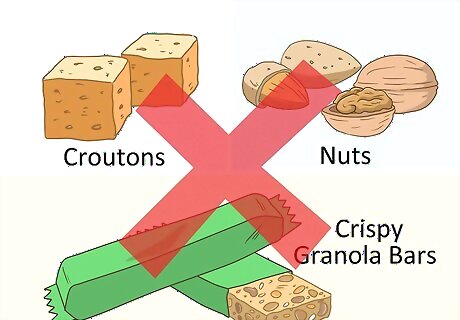
Abstain from solid hard foods. Dentures can easily break if you put excessive pressure on them. Stay away from foods that require added force to chew them properly. Some of these foods include croutons, crispy granola bars, and nuts. You could substitute nuts with pitted olives, which are also a good source of healthy fats.
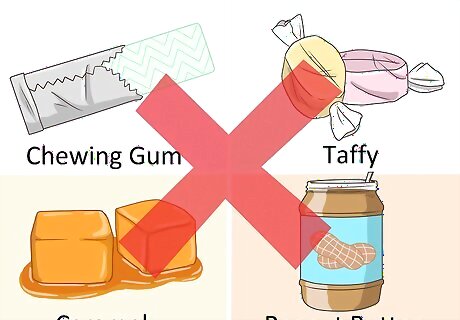
Avoid sticky foods. They can get trapped and stick in between your dentures and gums. Sticky foods can also dislodge your dentures and cause pain and discomfort. Steer clear of chewing gum, taffy, chocolate, caramel, and peanut butter. Hummus is a good alternative to peanut butter. It's spreadable and provides protein without the sticky texture.
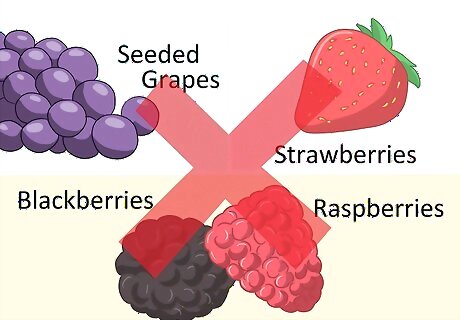
Don't eat foods with small particles. Fruits with seeds could easily get caught between your dentures and gums. Avoid strawberries, raspberries, blackberries, and seeded grapes. You should also stay away from baked goods with seeds on the crust. This includes poppy seed muffins, sesame seed buns, and kaiser rolls. Substitute seedy fruits with blueberries and seedless grapes. If you must have seedy baked goods, opt for breads, buns, muffins, etc. with baked-in seeds or grains that have been ground.




















Comments
0 comment